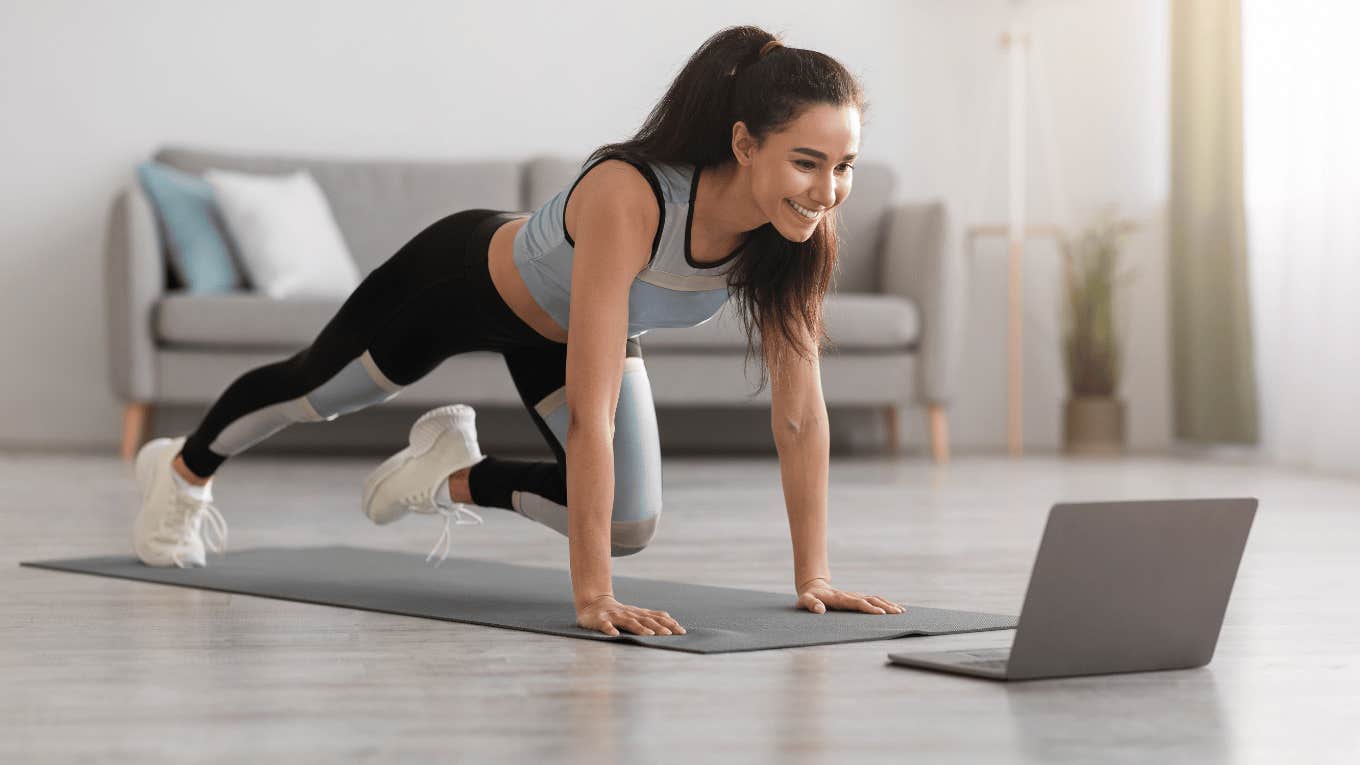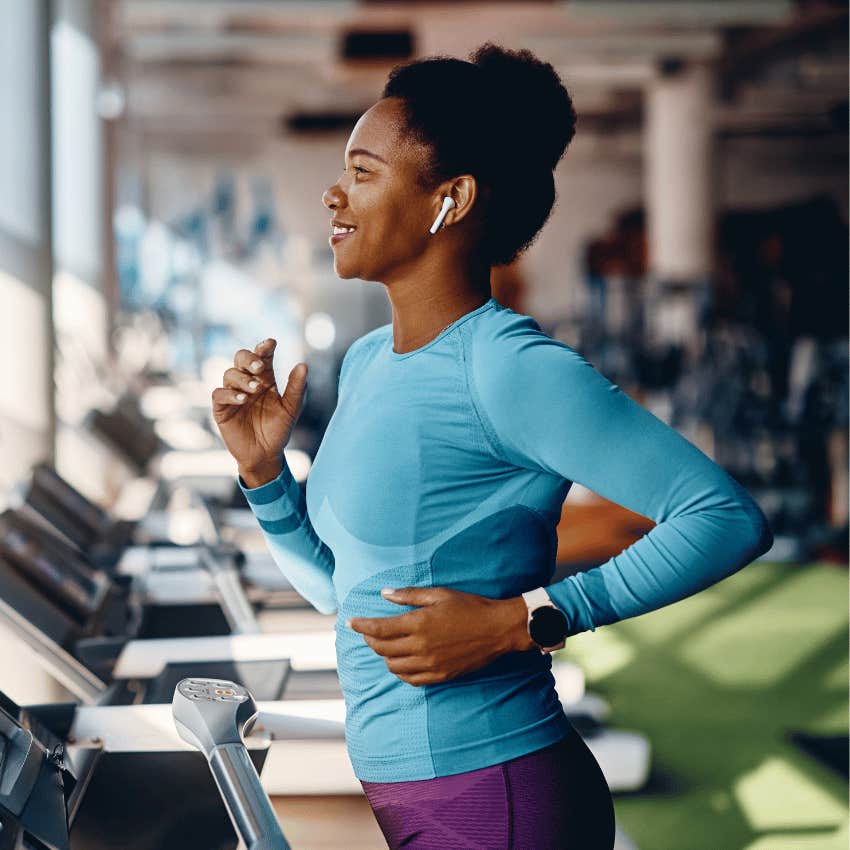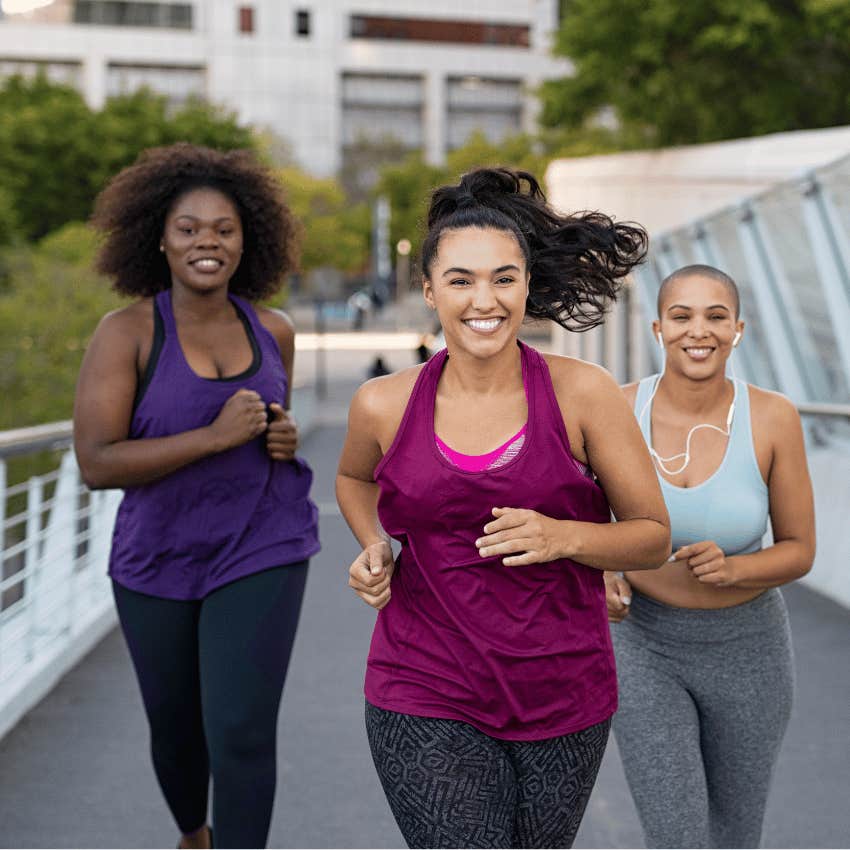Former Fitness Influencer Shares The ‘Toxic’ Practices She Used To Get Views — ‘It’s Still Being Done Now’
The health space on social media is a dangerous place.
 Prostock-studio | Shutterstock
Prostock-studio | Shutterstock Our relationships with our bodies are deeply personal. The way someone eats or exercises is no one’s business but their own.
Yet the rise of TikTok fitness trends and weight loss fads creates a kind of echo chamber in which individual influencers’ experiences are held up and measured as a standard. In reality, there’s no one-size-fits-all approach to health and fitness, even if social media pushes us to believe that there is.
A former fitness influencer is now speaking out about how the health and wellness space on social media has little to do with helping others and much more to do with getting clicks, likes, and views.
A former fitness influencer shared the ‘toxic’ practices she used to get views, noting they’re ‘still being done now’ in the industry.
Hannah Barry acknowledged her part in upholding hugely problematic ideas in the world of fitness influencing, which rippled out to affect people’s lives offline.
“I used to be a very toxic fitness influencer back in 2019,” Barry said. “I’m going to share with you some of the things that I used to do that were actually incredibly toxic but are still being done now.”
She offered a heartfelt disclaimer, saying, “We all grow, and we all go through things, and I was going through a lot in that period of time that you would never have known about online.”
Barry began her discussion of toxic fitness influencer practices by explaining that most ab workout posts are made solely to boost engagement.
“I used to get up at, like, 4 in the morning, so I could go to the gym and film in the gym when it was quiet, just to do a quick ab video because I would get millions and millions of hits of engagement on it, and brands want engagement,” she said. “It was very validating for me.”
 Drazen Zigic | Shutterstock
Drazen Zigic | Shutterstock
“I was very lean,” she continued. “I had very, very visible abs. It’s misleading to look at somebody with very low body fat percentages, doing ab workouts, and thinking that, ‘Oh, if you do this, this is how you’re gonna get abs.’”
She acknowledged how her personal problematic habits played a part, noting that she had an eating disorder at the time.
“I would post my full days of eating,” she said. “But what I didn’t post online was the fact [that] I was doing hours and hours and hours of cardio. So, at that moment in time, I was extremely underweight and very, very lean, and I was doing so much cardio.”
She touched on how insidious her eating disorder was, saying, “I was kind of doing it as a back and forth because it was like, well, if I need to maintain this level of leanness and kind of maintain this reputation about how I can maintain this while eating all this food, this is gonna help people, but really, that was doing the opposite for people.”
“I took a massive break from Instagram after this because it all got too much, and I needed to sort myself out, which I did,” Barry said.
The former fitness influencer owned the way her past harmed herself and others and described the negative feedback loop she found herself in.
“I wasn’t going about things in the right way initially,” she said. “I was holding a very low body fat percentage because, again, it was incredibly validating, people, telling me that I was so lean, yet behind closed doors, I was tired, I was losing my hair, I had grown fur, like all over my body.”
She was referring to developing lanugo, which is a fine layer of hair that insulates the body and regulates body temperature. Newborn babies often have lanugo, yet in adults, it's an indication of anorexia.
When a person restricts their food intake, they lose nutrients along with body fat. Their bodies struggle to maintain a normal temperature, and the growth of lanugo helps them retain heat.
“It was feeling insufferable to maintain that,” Barry said. “But because of online pressures, I felt like it was what I had to do.”
“I kind of hope part of my story inspires people, that you don’t have to stay that lean forever,” she continued. “I think the goal of enjoying fitness is to enjoy it as part of your life and have it empower you, not just have it sort of run you down.”
 Ground Picture | Shutterstock
Ground Picture | Shutterstock
Some of Barry’s followers saw her message as honest and transparent and applauded her for owning her toxic past. Yet not everyone shared that mindset.
“I’m so over this,” one person responded. “So many creators who ‘influenced’ their followers into an eating disorder are now coming clean and are being called ‘brave.’ You lied to people and harmed them. That’s not bravery.”
The comment raises questions about the issues of blame and forgiveness. Can recognizing your mistakes and apologizing for causing harm undo what was done?
None of us are perfect. We will all do at least one thing in our lives that hurts others, and let’s face it, most of us hurt people way more than once.
Forgiveness is also deeply personal, and just because someone offers an apology doesn't mean people have to accept it.
Yet there’s inherent value in the way Barry is holding herself accountable and raising awareness on how damaging fitness influencing can be.
The former fitness influencer revealed how her approach to health and exercise has changed.
In a follow-up post, Barry described how her approach to fitness has changed.
“Your lifestyle has to be enjoyable and sustainable,” she said. “My perspective now is, if being too lean means sacrificing relationships, memories, the ability to perform in your job, the ability to regulate your hunger cues, it’s not worth it.”
She did note the temporary external validation being thin brings in our society, saying, “You will get people that give you compliments and say you look great, but it’s not internally validating.”
“How you feel is the most important part of your life,” Barry said, a statement that rings especially true.
All too often, social media fuels our society’s rigid definition of beauty and its narrow perspective on what an acceptable body type looks like.
In reality, the amount you weigh doesn’t really indicate how healthy you are. If the wide range of physical abilities and body types displayed at the Olympics taught us anything, it’s that fitness and strength can appear in many different forms.
Barry’s message might not resonate with everyone, yet by virtue of speaking up, she’s offering a small disruption to an overwhelming large issue, one that affects how we see ourselves and how we see each other.
Alexandra Blogier is a writer on YourTango's news and entertainment team. She covers social issues, pop culture analysis and all things to do with the entertainment industry.

